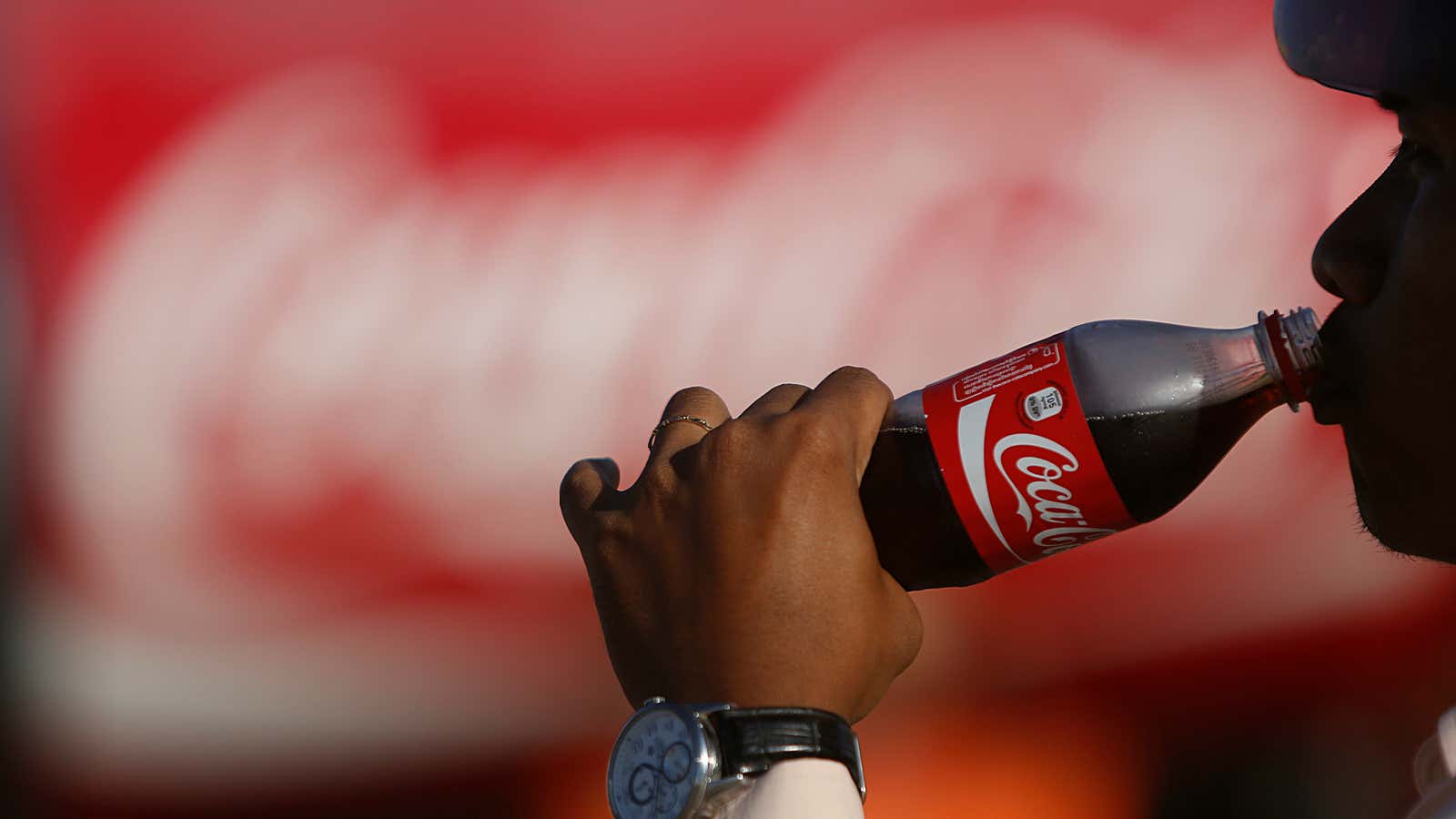It’s the opening shot of 2017, fired by health advocates looking to advance a long-running fight against soda-makers.
A lawsuit filed Jan. 4 in federal court in California alleges that Coca-Cola and its trade group, the American Beverage Association, deceived and confused the public—including children—about science that links sugar-sweetened beverages to chronic illnesses.
Filed by the Center for Science in the Public Interest, the lawsuit alleges that Big Soda used industry-funded reports and advertisements to shift blame for health troubles off its products and onto consumers’ exercise habits. Basically, the industry posited, if people atoned for their sugar consumption by exercising more, they’d be healthier.
“Coca-Cola and the ABA are misleading consumers about the health risks posed by sugar drinks, and claiming that there is no science linking sugar-sweetened beverages to obesity and related diseases,” the group said in a statement. “The campaign also led consumers to believe that all calories are the same, when science indicates that sugar drinks play a distinct role in the obesity epidemic.”
The human body digests and processes foods differently, the group says. For instance, digestion of one calorie from almonds is not identical to the digestion of one calorie from sugar. This idea was explored in-depth in the award-winning 2014 documentary, Fed Up.
The American Beverage Association and Coca-Cola acknowledged the lawsuit. A spokesman from Coca-Cola characterized it as “legally and factually meritless” in a statement to Quartz.
We take our consumers and their health very seriously and have been on a journey to become a more credible and helpful partner in helping consumers manage their sugar consumption. To that end, we have led the industry adopting clear, front-of-pack calorie labeling for all our beverages. We are innovating to expand low- and no-calorie products; offering and promoting more drinks in smaller sizes; reformulating products to reduce added sugars; transparently disclosing our funding of health and well-being scientific research and partnerships; and do not advertise to children under 12.
The suit comes after a year of defeats for the soda industry: Consumption is in decline in America, and several US cities have adopted soda-taxes policies. Those measures don’t look to be fizzling out either—word has it that a soda-tax proposal is imminent in Santa Fe, New Mexico.
